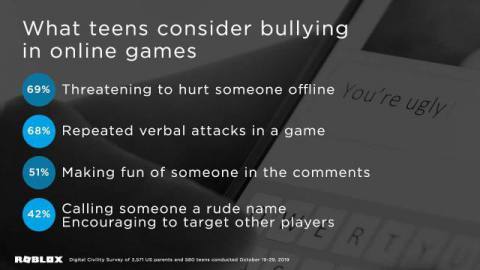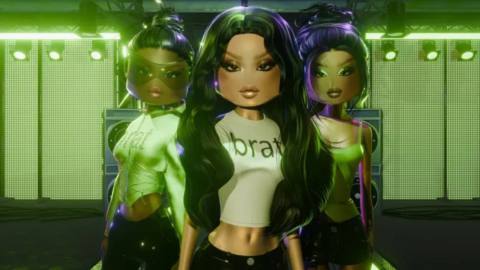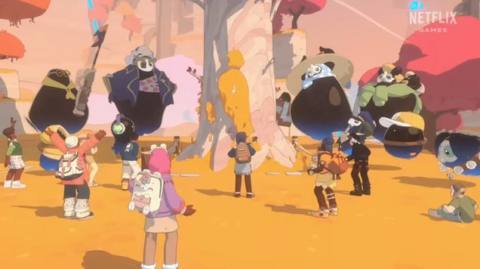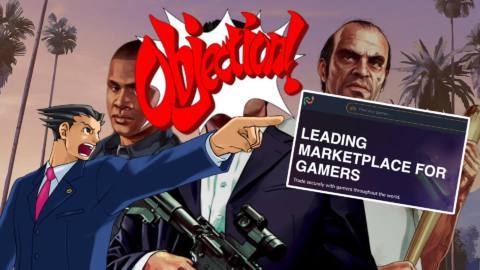October is Bullying Prevention Month in the U.S., and it is an important time to talk about bullying, how it can affect you, and what you can do to tackle it.
In our nationwide 2019 Digital Civility survey of U.S. parents and teens, twenty-two percent of parents shared that their children have personally experienced some form of online bullying, and nearly 1 in 5 (19%) of teens confirmed they’ve personally experienced online bullying within the previous 12 months. With “shelter-in-place” in force this year, and most kids spending much more time online, some of this behavior will likely have moved into the digital spaces you hang out in.
Bullying online is often carried out by people you know and may be linked to “real-world” bullying, which might make you feel like there’s no escape. Moreover, telling someone to just turn their phone off and ignore it is not very realistic. We all use technology for a variety of purposes, and especially at this time when we can’t see our friends face to face, being able to use chat apps or social platforms is very important.
We must be clear; bullying is never okay! There may sometimes be a catalyst for it, a fall out with a friend, or a disagreement over a sports game, but there is a difference between someone being mean or having an argument and bullying. Here are a few important things to know about bullying and how to deal with it:
- The definition of bullying is “repetitive and intentional hurting of one person or group by another person or group, where the relationship involves an imbalance of power.” This means that you can’t accidentally bully someone! While it may feel unpleasant if someone is mean to you, bullying is a repeated behavior, not a one-off disagreement. This is a common misunderstanding—for example, when we asked U.S. teens in a nationwide survey what they consider to be bullying when playing online games, they named various behaviors that may or may not fall into this category:

- Power image: The bully often yields power in the first instance. Sometimes they might be physically bigger, they might appear to be more popular or use others around them as back up, but actually, this power isn’t always real. The people standing by the person bullying are often just too afraid to stand up to them. This doesn’t make them “popular.” Don’t let the negativity they are imposing on you become your truth. You are equals.
- Bullying behavior is often targeted towards something very personal—your looks, personality traits, sexuality, or ethnicity, anything that the person bullying can use to hurt you. Remember that these exact things are what make each of us unique and interesting. They are not weaknesses; they are strengths. If you can start to see yourself in this way, it helps adjust that “power” imbalance and the person bullying loses their strength.
- Bullying is not a personality trait, but rather a behavior that can change. Sure, some people can be unpleasant or mean, but sometimes people act out of character. People can and do change. We should encourage that!
What You Can Do If You Experience Bullying
We spoke with the Roblox community and also got recommendations from experts at the global organizations like The Diana Award and Project Rockit that are focused on raising resilient digital citizens, providing resources, and training young people to stand up instead of standing by. Here are their top tips:
- Talk to someone about it. This is the very first thing to do—please never suffer in silence! There are people that can help you. Many will also have been through or are currently experiencing the same thing, so it can be very helpful to talk with them about their experiences. Alex Holmes, Deputy CEO at The Diana Award, an organization that provides resources and support for people who are experiencing bullying behavior, recommends: “Let someone—anyone—know how you are feeling, sense check the situation by asking someone ‘this just happened, what do you think’? Often instead of worrying on your own you might get a different perspective or take on the situation which may lead to you feeling much better and lead to you feeling supported and valued.”
- If you find it really hard to speak to someone, try writing a message. Holmes advises considering sending a text or an email or reaching out to an anonymous helpline or service for help. Some schools and colleges have anti-bullying ambassadors or peer support projects. You might even find it helpful to get involved yourself.
- Find your allies. Lucy Thomas, one of the founders of Project Rockit, Australia’s youth-driven movement against (cyber)bullying, notes that while it sounds obvious, sometimes we need to ask people to stand up for us online: “This doesn’t mean picking a fight with the person who is giving you a hard time. Instead, they could try interrupting nasty comments with a distraction, or posting positive content to show they have your back. If your online opponent knows you have people on your side, they are less likely to continue hassling you.” By the way, some good news here—in a nationwide survey of nearly 600 teens commissioned by Roblox last year, almost everyone (96%) said they’re likely to help a friend they see being bullied online!
- Don’t let others take over your problem. While it’s important to seek help, another recommendation from The Diana Award expert is not to let others overtake your issue. Instead, you can say: “I’d like you to listen, and perhaps we can solve this together.” Then come up with a strategy together that feels good to you.
- Look after yourself. Bullying can take its toll on emotional wellbeing, so make sure you surround yourself with people you like and do things that make you happy. Also, look after the physical side; you need to eat well and sleep.
- Use self-moderation tools (where available) like block and report on Roblox, as recommended by our community saying: “These are powerful tools that give you back control. Make sure you know how to use them on all the apps and websites you use.”
Finally, some words of support from Alex at The Diana Award:
“When someone treats you in the wrong way, it does affect our emotions, feelings, and mood,” explains Holmes, adding that it’s natural to feel upset or vulnerable, but that doesn’t make you weak. “We should all try and remember the strength each and everyone has inside of us. The talent and skills you possess, the great friend you are to others, and the potential you have to make the world a better place. What’s happening to you isn’t okay but it doesn’t define you, and things will get better.”






